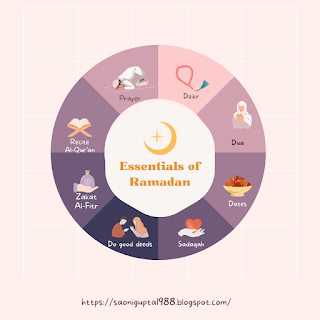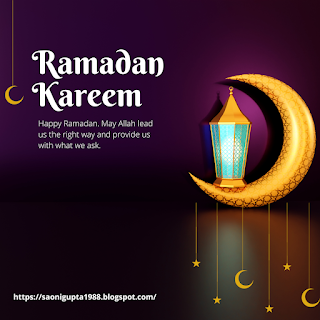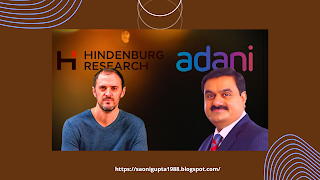Ramadan: The Month of Devotion
Ramadan is the ninth month of the Islamic calendar, during which Muslims fast from dawn until sunset. It is considered one of the most sacred months for Muslims and is a time for spiritual reflection, prayer, and charity. The following blog will discuss the significance of Ramadan, the practices and traditions associated with it, and its importance in the Muslim community.
Significance of Ramadan
Ramadan holds great significance in the Islamic faith, as it is believed to be the month in which the Holy Quran was revealed to the Prophet Muhammad. Muslims believe that during this month, the gates of heaven are open, the gates of hell are closed, and the devils are chained up. This creates an atmosphere of spirituality and piety, which encourages Muslims to reflect on their actions, repent for their sins, and seek forgiveness from Allah.
Practices and Traditions of Ramadan
Fasting during Ramadan
One of the most important practices during Ramadan is fasting. It is observed by millions of Muslims around the world, who abstain from food, drink, and other physical needs from dawn until sunset. This is a way to purify the body and the soul, and to demonstrate one’s commitment to the faith.
The purpose of fasting during Ramadan is to deepen one's spirituality and develop a greater sense of empathy for those less fortunate. Fasting is also believed to help develop self-control, discipline, and a greater awareness of Allah's blessings.
Fasting during Ramadan is obligatory for all adult Muslims, except for those who are sick, pregnant, breastfeeding, or traveling. Children are not required to fast, but they are encouraged to participate in other aspects of Ramadan, such as prayer and charity.
Charity during Ramadan
There are many ways in which Muslims can give during Ramadan, including donating to charitable organizations, giving to those in need directly, or performing acts of kindness towards others. Many mosques and community organizations organize charity drives during Ramadan, collecting donations of food, clothing, and other essentials for those in need.
One of the most important forms of charity during Ramadan is Zakat, which is a compulsory form of giving for Muslims who meet certain criteria. Zakat is calculated as a percentage of one's wealth and is given to those in need, including the poor, the needy, and the destitute.
In addition to Zakat, Muslims are also encouraged to give Sadaqah, which is a voluntary form of charity that can be given at any time. Sadaqah can take many forms, including giving money, food, or clothing to those in need; volunteering at a charity organization; or performing acts of kindness towards others.
Iftar
Iftar is the meal that Muslims eat to break their fast during the holy month of Ramadan at sunset. It is a time of celebration and togetherness, as family and friends gather to share a meal at the end of a day of fasting. The time for iftar is at sunset, which is when Muslims are allowed to break their fast after a day of abstaining from food and drink.
Many Muslims begin their iftar with dates, as this was the tradition of the Prophet Muhammad (peace be upon him). After eating dates, Muslims often have a more substantial meal that may include soup, rice, meat dishes, and various desserts.
In many Muslim communities, iftar is a time for socializing and strengthening bonds with loved ones. Some mosques also offer iftar meals for those who are unable to cook or who do not have family nearby.
In addition to the social aspects of Iftar, it is also considered a time for spiritual reflection and gratitude. Muslims often take a few moments before eating to thank Allah for the blessings in their lives and to reflect on the importance of the act of fasting during Ramadan.
Halim
Halim is a popular dish in many Middle Eastern and South Asian countries, especially during the month of Ramadan. The preparation of halim involves slow-cooking wheat, lentils, and meat (usually beef or lamb) in a blend of spices and seasonings. The mixture is stirred constantly until it has a thick, creamy consistency. Halim is typically garnished with fried onions, lemon juice, and chopped coriander leaves and served hot.
In addition to being a delicious and filling dish, halim is also known for its nutritional value. It is high in protein, fiber, and essential vitamins and minerals, making it a healthy choice for those who are fasting during Ramadan. The slow-cooking process also helps to break down the ingredients and make them more easily digestible.
Halim is enjoyed by people of all ages and is often served as a main course during iftar (the meal that breaks the fast) or suhoor (the pre-dawn meal). It is a comforting and satisfying dish that is perfect for sharing with family and friends during the holy month of Ramadan.
Eid al-Fitr
Eid al-Fitr marks the end of Ramadan and is a time for Muslims to come together and celebrate the end of the month-long fast. It is a day of feasting, gift-giving, and spending time with family and friends.
Muslims attend special prayers in the morning, followed by a day of festivities and celebration. It is also an important time for Muslims to express their gratitude to Allah and celebrate their faith with their community.
Importance of Ramadan in the Muslim Community
Here are some of the key reasons why Ramadan is important to the Muslim community:
Spiritual Reflection and Purification: Ramadan is a time for Muslims to focus on their spiritual growth and reflection. Through fasting, prayer, and other acts of worship, Muslims seek to purify their hearts and minds and draw closer to Allah.
The emphasis on self-discipline and self-control helps Muslims build a stronger connection with their faith and develop a deeper understanding of its teachings.
Creating a Community: The month of Ramadan is a time for Muslims to gather together. The daily fasts are broken with a communal meal, known as iftar, which is often shared with family, friends, and neighbors.
This helps to strengthen relationships and foster a sense of belonging. Additionally, many mosques and Islamic organizations hold special events and activities during Ramadan, further promoting community building.
Increased Focus on the Quran: Ramadan is believed to be the month in which the Quran was first revealed to the Prophet Muhammad. As such, Muslims place a special emphasis on reading and studying the Quran during Ramadan.
Many Muslims aim to complete the entire Quran by the end of the month, which helps to deepen their understanding of the faith and its teachings.
Conclusion
The month of Ramadan is a time for self-discipline, communal living, and spiritual reflection. It is a time for Muslims to strengthen their faith, seek forgiveness, and engage in acts of charity. Fasting during Ramadan teaches self-control, empathy, spiritual blessings and reward. Iftar is a time of celebration and togetherness, while Eid al-Fitr marks the end of Ramadan with joy and festivities. Ramadan is a sacred month for Muslims and holds great significance in the Islamic faith.








Well Explained, Thanks
ReplyDeleteThank u so much !!!😊
DeleteThe significance of this sacred month is well explained.
ReplyDeleteThank u so much !!!😊
DeleteVery nice 👍
ReplyDeleteThank u so much !!!😊
Delete